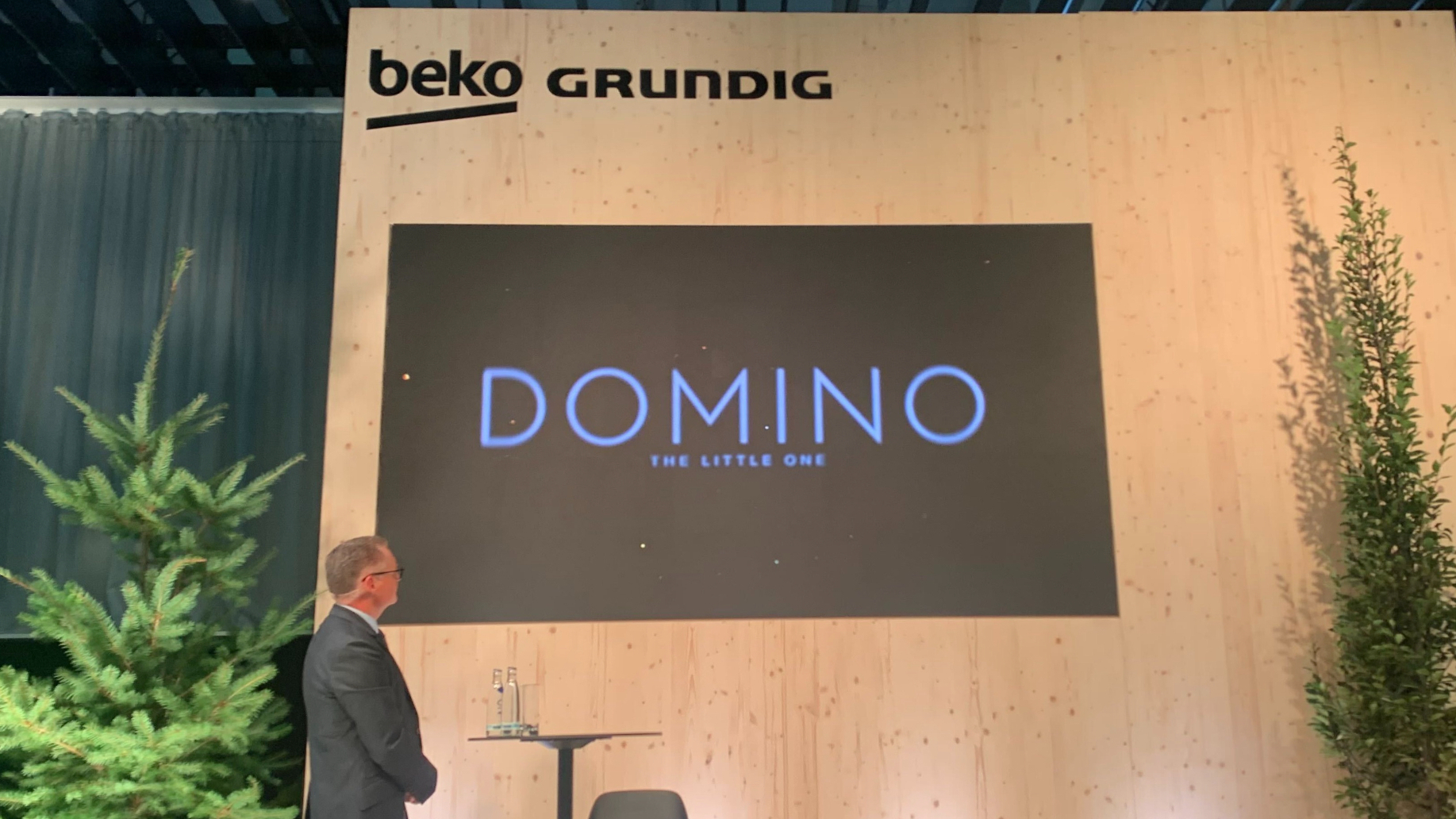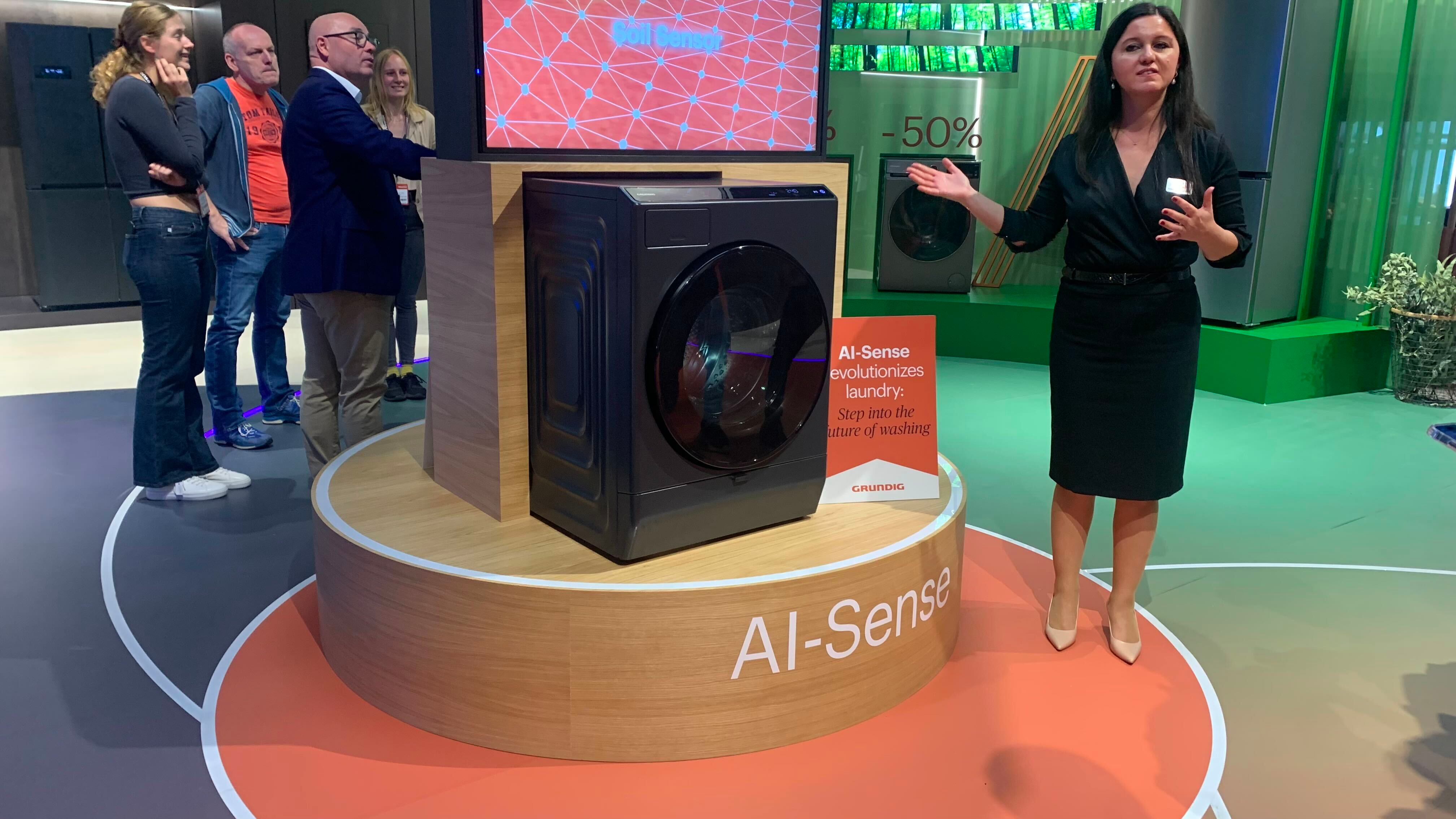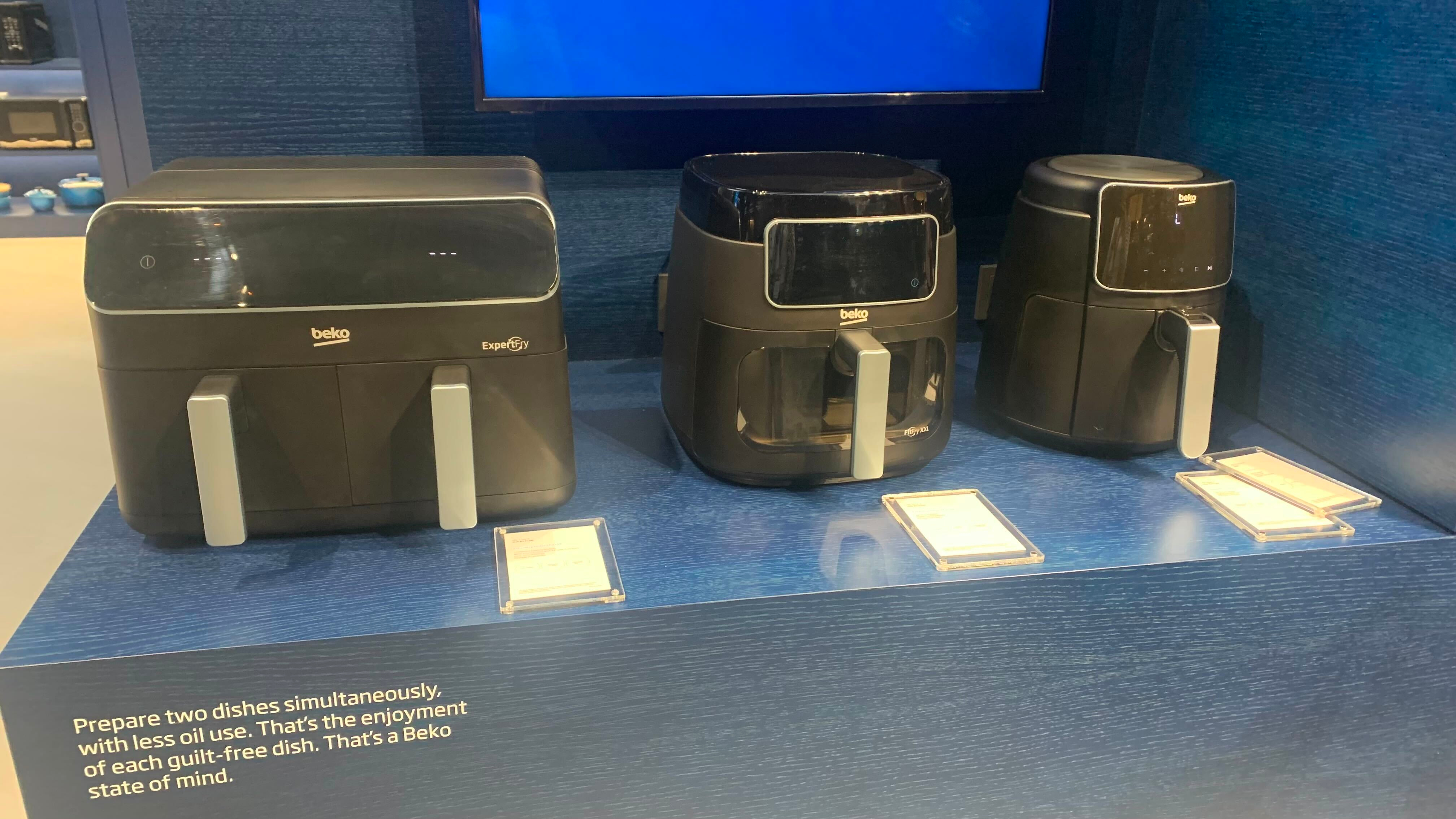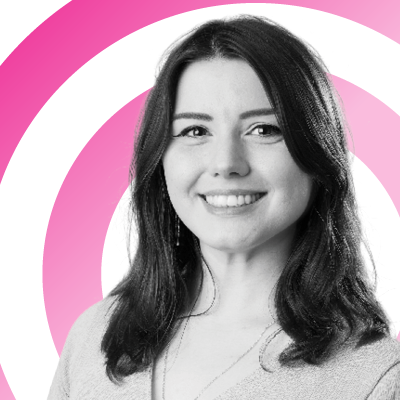Microplastic filters, AI and video games: Beko's mission to go green
Domino effect

Sign up for breaking news, reviews, opinion, top tech deals, and more.
You are now subscribed
Your newsletter sign-up was successful
When you think of sustainability leaders, you don’t necessarily think of tech companies. Perhaps even more scarcely would you look straight to white goods and small appliance manufacturers.
Despite this, one of the most interesting conversations I had about sustainability during IFA 2023 was with Beko’s CEO, Hakan Bulgurlu, who’s been a major advocate for raising climate crisis awareness throughout the company, and for baking mitigation tech and sustainability features into the company’s products.
For several years now, Beko and its sister brand Grundig have been positioning themselves as leaders in sustainable appliances, largely by focusing on small but meaningful ways in which appliances can help consumers save water and energy, as well as reduce waste and byproducts.

The inescapable truth
Where previously, the climate crisis felt like a distant future to some, Bulgurlu argues that nowadays it’s all too apparent.
“Our quality of life is deteriorating, and we’re seeing that today with extreme weather and mass migration; look at the fires we’ve seen this year, it’s fatal,” he says. “What we're trying to do is twofold. We're trying to decarbonize as fast as we can, and that's not just decarbonizing the power and materials we use during production, but also very much focusing on how much energy our products use.
“That’s the only thing that really matters – 98% of emissions we cause come from the products we manufacture.”
In practice, he explains, that means rerouting Beko’s resources and research engineers into creating smart, machine learning-driven appliances that can 'learn', based on the mass of data generated as people use devices, how to consume the least amount of power and water necessary without inconveniencing the user.
Sign up for breaking news, reviews, opinion, top tech deals, and more.
Grundig’s AI-sense artificial intelligence in its washing machines, for example, can identify the fabric type, dirtiness, load weight and automatically switch to the most suitable washing program.

No more shirking the blame
Energy efficiency is one thing, and an important cause to be sure, many more issues contribute to our current environmental and climate crises, and Bulgurlu is keen to see Beko address as many of these as it can.
A few years ago at IFA 2021, Bulgurlu discussed in his keynote address a new innovation from the company: a tamper-free microfibre tray that can prevent harmful, minuscule plastic material from entering our water supplies.
“There was a lot of resistance in the industry in the company, with many arguing that it isn’t our problem, and is more so the fault of manufacturers, fast fashion and synthetic yarn producers,” Bulgurlu explains. “Who cares whose problem it is, right? You need to create a solution, because we're ingesting fish that are eating microplastics and making ourselves sick.”
Presently, these filters are being rolled out across Beko’s entire range. Once full, the tray can be sent to Beko’s retailers for recycling. Burgurlu explains that these fibers are “high-value” – though it is worth highlighting that recycling has also been found to release plenty of microplastics. Still, I should imagine that it’s still better than it going straight back into the ocean.
Instead of patenting and limiting this idea, Beko invited competitors to join the fray; now, just two years later, he says the impact is already being felt. A great example comes from California, which is pushing for regulation that would compel all washing machines to feature a microplastics filter by 2029.

Gamifying climate awareness
In addition to its product-based tools and features, Beko has taken a unique approach to raising climate awareness, given its firm footing in the home appliance industry. At IFA, it announced that it had collaborated on a new game that tackles the theme of climate change and gamifies the learning process: Domino: the Little One.
The game will be available on Steam as well as on the Google Play and Apple App stores, and is created to help consumers understand the impact of their choices through positive, incremental changes made to a post-apocalyptic world ravaged by climate change.
Burgurlu sees this as ”just the first step” to gamifying climate consciousness, envisioning a future where gamified kilowatt-hours savings could lead to in-store discounts, and even whole cities competing to net the greatest savings.
He also hinted at exciting developments when it comes to the smart home – and that's music to my ears as an evangelist for the technology. Burgurlu said Beko will create its own ecosystem, but one that's interoperable with other ecosystems, with the key goal here being creating further opportunities for energy efficiency.
Whether it’s by using recycled materials in construction, high-level machine-learning on-device AI, or clever iterative changes like the microplastics tray, Beko is clearly leaning heavily on its 'Positive domino effect' tagline for 2023, and we’re excited to see where its decarbonizing journey takes the company next.
You might also like

Josephine Watson is TechRadar's Managing Editor - Lifestyle. Josephine is an award-winning journalist (PPA 30 under 30 2024), having previously written on a variety of topics, from pop culture to gaming and even the energy industry, joining TechRadar to support general site management. She is a smart home nerd, champion of TechRadar's sustainability efforts as well and an advocate for internet safety and education. She has used her position to fight for progressive approaches towards diversity and inclusion, mental health, and neurodiversity in corporate settings. Generally, you'll find her fiddling with her smart home setup, watching Disney movies, playing on her Switch, or rewatching the extended edition of Lord of the Rings... again.